🔥 First Order Is Free ( View Details )
With the rise of artificial intelligence, ethics are more important than ever. As we explore AI research, a big challenge arises: making sure things are fair, and biases are reduced.
This isn't just a technical problem; it's a moral one!
Imagine AI systems accidentally treating some groups unfairly or making existing biases worse. Think about a world where AI adds to inequalities instead of fixing them. It might sound like a sci-fi story, but it's a real worry for students studying AI.
This guide dives into AI ethics, helping students handle tough ethical questions. It teaches how to make AI fair and unbiased.
Let's start this exciting ride!
Bias in AI refers to the presence of unfair or unjustified preferences in the outcomes generated by AI systems. These biases can stem from various sources and have the potential to impact the fairness and accuracy of AI applications significantly.
There are different types of biases:
One of the key contributors to bias in AI is biased training data. When AI algorithms learn from biased data, they can end up reinforcing those biases. Recognizing and addressing data bias is essential for creating unbiased AI systems.
AI algorithms can inherit biases from the way they are designed and trained. If an algorithm is built using biased data or biased assumptions, it can lead to unfair decisions. Regular audits of algorithms and refining their design can help mitigate this type of bias.
AI systems can reflect the societal biases present in the data they are trained on. These biases can relate to gender, race, and other social factors. Being aware of these biases and taking proactive steps to counteract them is vital to ensuring AI fairness.
The way AI systems are evaluated can introduce bias. If the evaluation metrics aren't designed to measure fairness, the AI might achieve high accuracy while still exhibiting biased behavior.
Developing evaluation criteria that account for fairness is crucial.
Data plays a pivotal role in shaping biases within AI systems. The quality of data used for training models directly influences the fairness and potential bias of the resulting AI applications.
|
Challenges in Bias Mitigation |
Description |
|
Lack of Clear Definitions |
Defining what constitutes bias in various AI applications can be complex, making it challenging to establish clear mitigation strategies. |
|
Data Collection Bias |
Biased data collected for training can lead to biased models, perpetuating unfair outcomes. |
|
Algorithmic Complexity |
Some AI algorithms are intricate, making it difficult to pinpoint and address sources of bias within them. |
|
Trade-offs between Fairness and Accuracy |
Striking a balance between fairness and model accuracy can be tricky, as addressing bias might impact predictive performance. |
|
Bias Amplification |
Biases present in data can be amplified by AI algorithms, potentially resulting in unintended discriminatory outcomes. |
|
Lack of Diversity in Development Teams |
Homogeneous development teams may unintentionally overlook certain biases, emphasizing the need for diverse perspectives. |
|
Ethical Considerations |
Deciding how to correct biases, while being ethical and respecting different cultural contexts, poses challenges. |
|
Dynamic Nature of Bias |
Bias can evolve over time, requiring continuous monitoring and adaptation of mitigation strategies. |
Ethics is more than a mere backdrop to AI research; it's a pivotal driver that extends beyond technological progress.
Ethical AI research is a multidisciplinary endeavor involving not only computer scientists but also ethicists, sociologists, and diverse experts. In AI development, cultural, social, and historical contexts are paramount considerations, ensuring technology aligns with the real world.
Central ethical principles like transparency, accountability, and respect for human values serve as guiding stars in AI research.
By integrating ethics, AI research evolves into a force that advances technology while staying deeply aligned with humanity's needs and values.
Here is an informative video on Ethics and AI.
Ensuring fairness and bias mitigation in AI research is crucial to developing ethical and responsible AI systems. Here's a comprehensive guide on how to achieve this:
By adhering to these steps, you can contribute to the development of ethical AI research that benefits society as a whole.
The potential of AI in the future is promising, but it must be navigated ethically to ensure its benefits are accessible to all. As AI becomes an ever more integral part of our lives, the prospects of AI ethics become a cornerstone of its development.
Key emerging trends, such as federated learning, have profound implications for fairness and addressing ethical issues.
In the era of facial recognition and personal data handling, ethical considerations are paramount. AI's ability to process vast amounts of personal data raises concerns.
In addition, human decisions are central to ethical AI, particularly when it comes to the criminal justice system and health care. AI should serve as a supportive tool, assisting human decisions rather than replacing them.
The "black box" nature of some AI models poses ethical challenges. As we peer into the future, transparency will be vital. The role of AI in promoting inclusivity and diversity is significant, provided it's developed ethically. Collaborative efforts between academia, industry, and policymakers will play a pivotal role in shaping AI's ethical future.
Wrapping Up!
In the ever-evolving landscape of artificial intelligence, the path forward is both exciting and complex. As AI becomes increasingly embedded in our daily existence, the significance of ethical considerations cannot be overstated.
The future of AI holds remarkable potential, from advancing healthcare to enriching academics and research. AI can analyze student performance, engagement, and learning preferences to aid educators in creating effective curricula.
Looking for AI writing assistance? Try PerfectEssayWriter.ai!
It is an essay writer offering templates, editing, and suggestions to enhance your content. Embrace ethical AI in academia while boosting your writing with PerfectEssayWriter.ai.
Try now!

WRITTEN BY
Cathy A. (Mass Communication, Education)
Cathy is a highly dedicated author who has been writing for the platform for over five years. With a Master's degree in Mass Communication, she is well-versed in various forms of writing such as articles, press releases, blog posts, and whitepapers. As an essay writing guide author at PerfectEssayWriter.ai, she has been helping students and professionals improve their writing skills by offering practical tips on research, citation, sentence structure, and style.
For more than five years now, Cathy has been one of our most hardworking authors on the platform. With a Masters degree in mass communication, she knows the ins and outs of professional writing. Clients often leave her glowing reviews for being an amazing writer who takes her work very seriously.
On This Page On This Page
Share this article
AI in Collaborative Learning Environments

AI Tutors: Personalized Learning for Students in the Digital Classroom
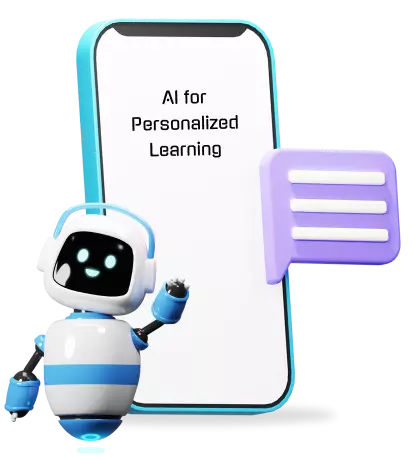
AI and the Future of Teacher-Parent Communication

AI in Curriculum Design: Adapting Education for the Future

AI and Multilingual Education: Bridging Language Barriers in Learning

AI and Special Education: Empowering Students with Disabilities
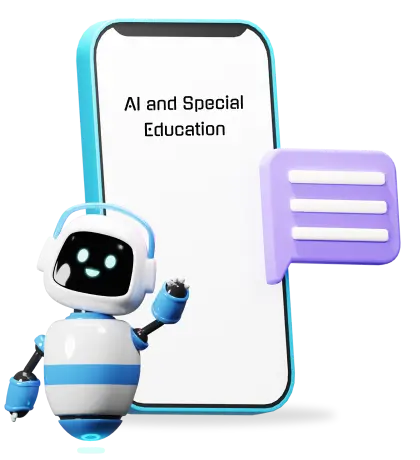
AI and Research Discovery
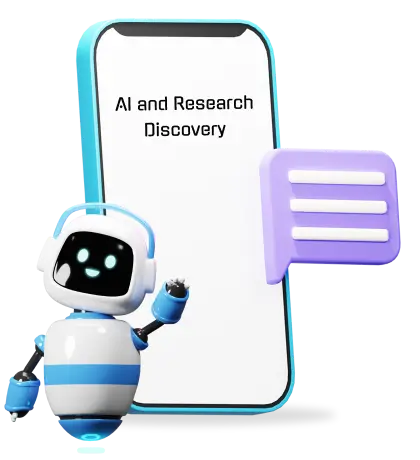
AI in Peer Review: Transforming the Academic Publishing Process

AI's Impact on Student Performance
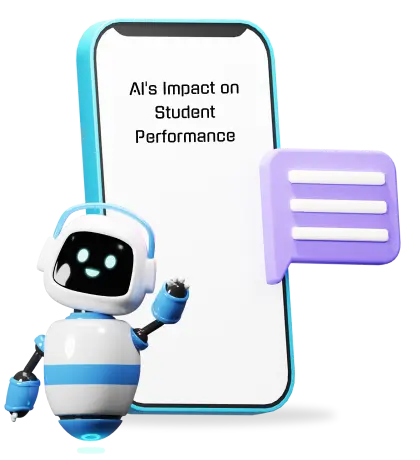
Ethical Considerations in AI Research: Ensuring Fairness and Bias Mitigation
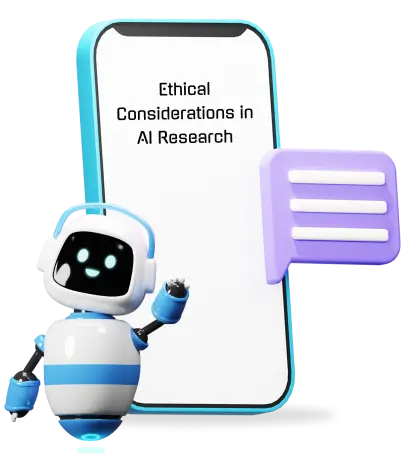
Ethical Considerations in AI-Generated Academic Content
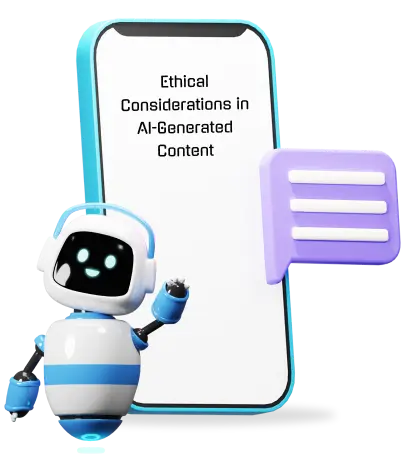
The Future of AI in Academic Writing: Trends and Predictions
